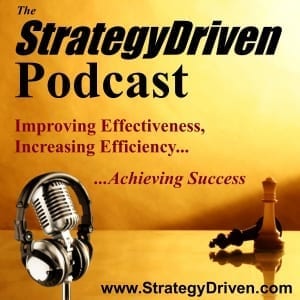What’s the Deal? 3 Steps for Entrepreneurs & Spouses to Live Happily Ever After

As soon as Dodsworth retires, his wife, Fran, begins to plan their extensive trip to Europe and throughout the process both Dodsworth and Fran encounter differences in their expectations for the trip. Their differences are similar to what my former colleague, Jeff Rothstein, referred to as “What’s the Deal?” Jeff’s assumption was that all couples have an implicit “deal” that is never spoken about and governs how they interact with each other. Jeff posited that when couples move into their 60s, they begin to discuss and question their expectations for their golden years. From Jeff’s perspective, this is an opportunity to dialogue and recalibrate your expectations and come to a common understanding about your future together.
Nearly all couples have implicit, unmentioned, assumptions about their marital relationship. As couples get older and consider retirement or changing their work relationship, many have not considered a plan for the future. They have no resources, no practice, no roadmap, and when they look ahead, they feel adrift.
I help business families address this change using a process I call Life Career Planning. Using Career Life Planning techniques, they realize a sense of fulfillment and purpose. Both the entrepreneur and spouse turn their dreams into reality. The couple enjoys peace of mind about their future. Most importantly, the process helps them devise a common perspective of their values. They can effectively share their goals and dreams with each other in a manner that honors and engages both. They redirect their wisdom and their knowledge of life to produce a realistic, engaging plan for meaningful work and leisure time. They look ahead by looking back.
Nineteenth century Danish philosopher Soren Kierkegaard extolled, “Life can only be understood backwards but it must be lived forwards.” To me that means we recognize, embrace, and celebrate our accomplishments so that we can use them to energize the future.
Life Career Planning unfolds in three simple stages that help draw the entrepreneur and spouse from the past to the future: Harvest the Past, Turn the Soil, and Plant New Seeds.
- The couple harvests the past by celebrating the blessing of their life. They own and let go of regrets and hurts of the past. I offer pathways that encourage candid exchanges and mutual encouragement. As the couple harvests their past, they can stand in the present, to make conscious choices about what they want for themselves, their family, and their business.
- By turning the soul, the couple speculates on all they might like to do. To get there, they may talk about their personal purpose, what’s meaningful in their lives, and the role that spirituality plays in their work and life. They discuss how to be content by aligning their gifts with all areas of their lives.
- As the term implies, planting new seeds puts the couples’ new ideas into a plan for the future. They create a new dream together based on their explicit, shared goals and values—the discussions they have had in harvesting and turning the soil. Many aspects are drawn together: work, relationships, money/wealth, community service, leisure time, health, and spirituality. By recognizing and aligning all of these aspects, the couple builds direction into their future and an enthusiasm to engage in it.
In the case of Dodsworth and Fran, their vastly different expectations were highlighted during their European travel. Fran was youth-obsessed and wanted to embrace a spontaneous and impulsive lifestyle. Dodsworth wanted a more secure lifestyle to enjoy experiences and the wonders of the world like viewing the Northern Lights and appreciating the mysteries of the universe.
Had Dodsworth and Fran realized that entrepreneurs are driven by their dreams they could have anticipated their differences and avoided the tragedy that their relationship would soon befall.
To achieve this new dream for work, our challenge is to understand our purpose and identify what gives heart and meaning in relation to [our] work. That may mean we don’t have to leave our companies, but basically change our job descriptions from day-to-day management to much less demanding daily activities. It also requires us to become the architect and designer, with our families, of the new ownership and management system of our companies.
The new dream for the family is the most important part of Life Career Planning. It is an opportunity to directly confront the question of “What’s the Deal?” and renew your relationship with your spouse and children and redefine your role as grandparents. Related to this is the opportunity to perpetuate your legacy for the benefit of your community and your family.
Likewise, the opportunity to create a new dream for leisure time is the chance to plan, as a couple, to do all those things you have never had the time to do together, but also is an opportunity to plan and do things you have wanted to undertake individually. Recently, while talking with an entrepreneur client who I will call John, who had been exploring his own Life Career Planning, he shared that he has been weighing the possibility of taking a one-month sabbatical to experience what it feels like being away from his company. What John discovered while on sabbatical from his business was that his initial fears of not having a sense of self-worth were not realized. The sabbatical gave him the opportunity to feel good about developing plans to follow up on some of the dreams that he always wanted to explore. In addition, quite to John’s surprise, even though the sabbatical was only one month, his executive team quickly adjusted and began to establish a successful leadership plan to effectively run his company.
To create a new dream for service and philanthropy is an opportunity to reflect on your skills of compassion and sense of gratitude. C. Michael Thompson wrote in The Congruent Life, that “service is on the outside like prayer is on the inside.” Creating a family foundation or donor-advised fund are a few of the ways that are available for you to give back. It is also an opportunity to engage the next generation and your grandchildren in the process of service and philanthropy. Several of my clients engage their entire family in service projects. As grandparents, you can be quite influential with your grandchildren and assist them in establishing gratitude for the blessings of their lives.
If order for you to begin the process of Life Career Planning in your own life, you can reflect on and answer the following seven questions.
- What are your seven most important beliefs?
- What are the 10 major steppingstones of your life?
- How have these events shaped your life and influenced you in regard to your life plan?
- What are the major strengths you have developed as a result of your life experiences?
- What are your spiritual gifts?
- What is your purpose in life?
- What are your talents?
- What are you most passionate about?
- What is the most natural environment for your life?
- Identify the most important elements of the three previous questions and combine them into a sentence that goes as follows: “My purpose in life is…”
7. What is my new dream in relation to:
- Work (Achievement)
- Family (Intimacy)
- Leisure (Play and Creativity)
- Service (Compassion & Contribution)
- Philanthropy (Legacy – Values)
- Health
- Purpose (Meaning)
- Personal Mastery (Know Thyself)
With an appropriate amount of planning and discussion with your spouse, you can avoid the pitfalls that Dodsworth and Fran encountered. Take the time to engage in Life Career Planning with your spouse to ensure that your golden years are truly the best years of your lives.
About the Author
Tom Hubler is the author of THE SOUL OF FAMILY BUSINESS: A Practical Guide to Family Business Success and a Loving Family (2018). He is a family business advisor and President of Hubler for Business Families. When Hubler began working with family-owned business in 1980, there were very few in the field and he has therefore played a major role in this area, from helping colleges and universities establish family business institutes to his work with countless families and their business enterprises.



 StrategyDriven Podcasts focus on the tools and techniques executives and managers can use to improve their organization’s alignment and accountability to ultimately achieve superior results. These podcasts elaborate on the best practice and warning flag articles on the StrategyDriven website.
StrategyDriven Podcasts focus on the tools and techniques executives and managers can use to improve their organization’s alignment and accountability to ultimately achieve superior results. These podcasts elaborate on the best practice and warning flag articles on the StrategyDriven website.
 Sharon Drew Morgen is a New York Times bestselling author and developer of a change management model based on buy-in that she’s written about in her latest book
Sharon Drew Morgen is a New York Times bestselling author and developer of a change management model based on buy-in that she’s written about in her latest book 
 Hilary Jane Grosskopf is the author of
Hilary Jane Grosskopf is the author of